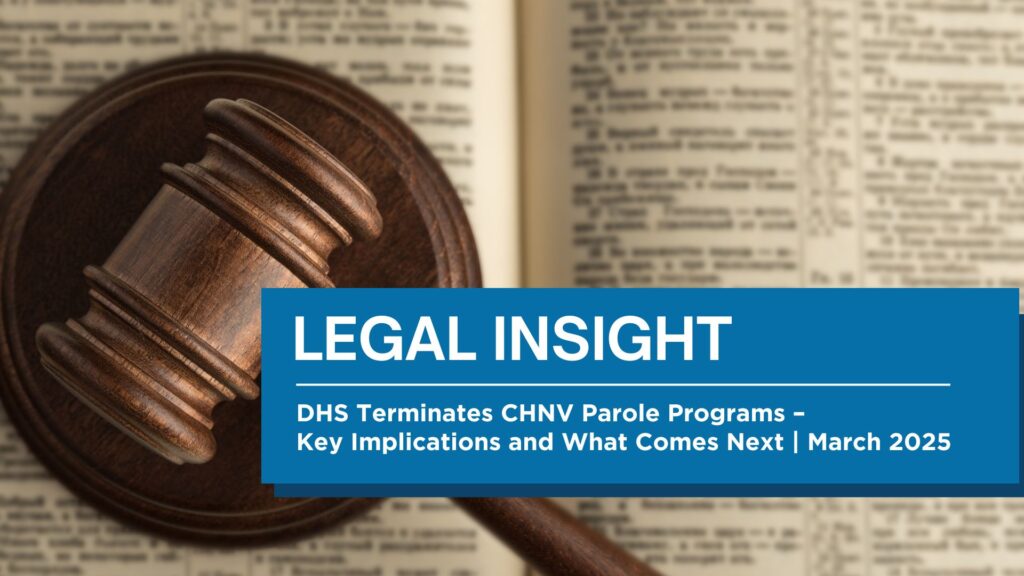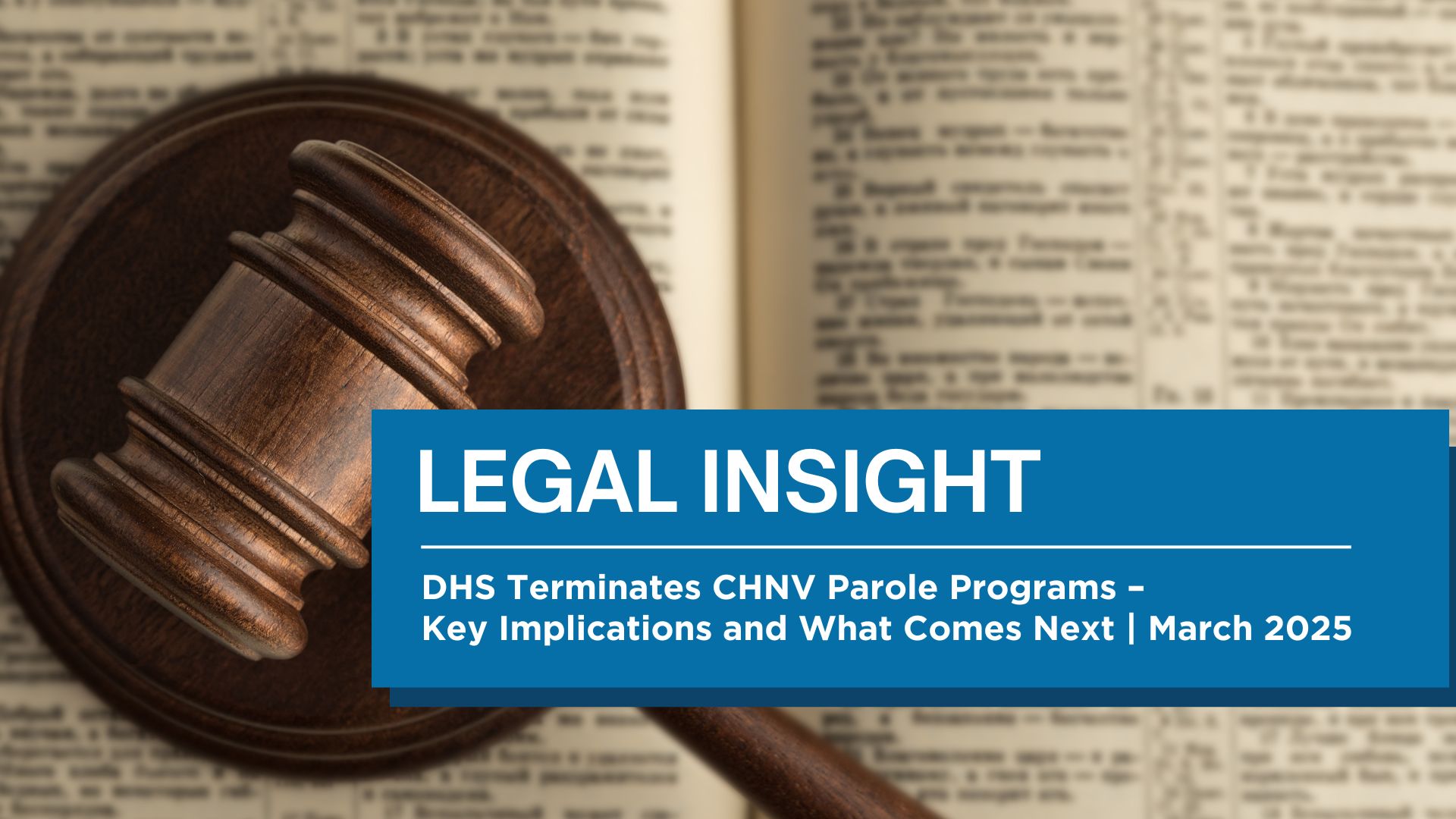

The Department of Homeland Security (DHS) has officially terminated the CHNV parole programs—initiatives that allowed nationals from Cuba, Haiti, Nicaragua, and Venezuela, along with immediate family members, to seek parole into the U.S. for urgent humanitarian or public benefit reasons. These programs, introduced in 2022–2023, aimed to manage migration through a structured, lawful process, but are now deemed inconsistent with the current administration’s policies.
This decision, set to take effect 30 days after the Federal Register publication, represents a significant policy pivot under Executive Order 14165 (“Securing Our Borders”) and reflects a broader effort to enhance border security and reduce strain on the immigration system.
Key Legal and Procedural Changes
- Immediate Program Termination
- All pending applications for advance travel authorization under CHNV are being cancelled.
- USCIS will issue non-confirmation notices for unprocessed or pending Form I-134A applications.
- Impact on Current Parolees
- Approximately 532,000 individuals had entered the U.S. under CHNV parole.
- DHS will terminate parole status for individuals still under it unless a case-specific extension is granted.
- Affected individuals must depart or secure another lawful status; otherwise, they may face expedited removal.
- Employment Authorization at Risk
- Employment Authorization Documents (EADs) granted under category (c)(11) will be revoked following parole termination.
- Employers and HR professionals need to be notified discreetly to review compliance issues.
Legal and Strategic Considerations
- No Path to Re-Parole: There is no re-parole mechanism under CHNV. Legal practitioners should advise clients accordingly.
- Time-Sensitive Filings: Those seeking adjustment of status, asylum, or other relief must act immediately before parole expires.
- EOIR & USCIS Backlogs: With CHNV parolees potentially flooding the system, we anticipate further delays in hearings and adjudications. Prepare accordingly.
- Foreign Policy Shift: The rationale behind this shift reflects the administration’s renewed commitment to “America First” strategies, tightening parole discretion and border controls.
For Clients & Practitioners: What You Should Do Now
- Parolee Status Review: All CHNV parolees should review their status and consider whether they qualify for other relief.
- Filing Deadline Awareness: Parolees should submit applications before the 30-day cut-off to preserve procedural benefits.
- EAD Compliance Audit: Employers and sponsored individuals should confirm the status and expiration of EADs to avoid legal exposure.
Final Thought
The CHNV termination is not just a policy change—it reflects a hardening of U.S. immigration enforcement across humanitarian and discretionary categories. For case-specific guidance, reach out to VKM Law Group directly.